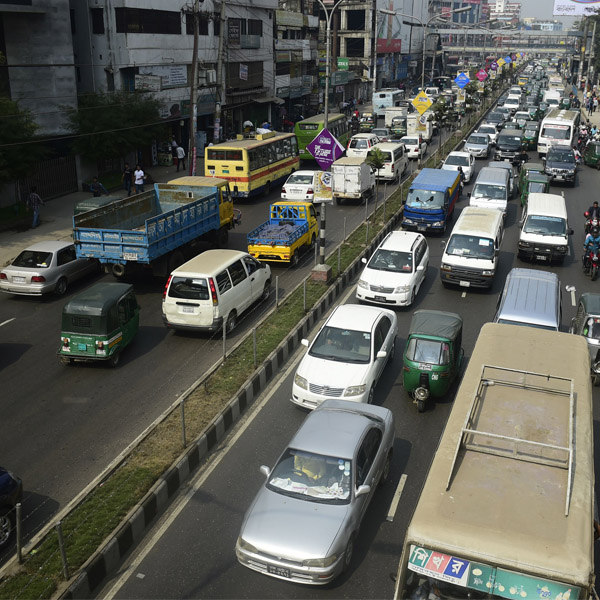The political crisis in Bangladesh, which has been triggered by the Bangladesh Nationalist Party (BNP) – led 20-party opposition alliance, is creating severe disturbance in public life, and highly placed experts in Bangladesh have warned that unless checked, the country could become another Syria.
The warning from these experts arises because of a country-wide blockade enforced by cadres of the Jamaat-e-Islami with the backing of the BNP and its allies.
Possessing unbridled street power, fanatical religious commitment, arms and ammunition, the Jamaat-e-Islami has launched largely unrestricted and sudden acts of violence and arson attacks, leading to a large number of deaths, destruction of properties worth crores of Taka (Bangladesh currency) and damage to vehicles.
So devastating has been the impact of the blockade that has been in place since January 6, 2015, that even hospitals have expressed a helplessness in providing life-saving drugs and oxygen to their patients, citing regular supply chain disruptions.
The Federation of Bangladesh Chambers of Commerce and Industry (FBCCI) has estimated that this violent opposition-led blockade is costing the national exchequer a loss of between Taka 1500 crores and Taka 2000 crores daily.
Economically, a key sector like the ready-made garment sector, which is the nation’s highest foreign exchange earner, is incurring a loss of nearly Taka 843 crores daily. Transport is losing an estimated Taka 300 crores daily; agriculture (Taka 288 crores daily); real estate (Taka 250 crores daily) and tourism (Taka 200 crores daily).
It is well known that the Jamaat-e-Islami has significant links with international militant organisations, and of late, it has been reported that they are training 15 to 20 fighters fromAfghanistan and Pakistan, besides arming and training Rohingyas from Myanmar.
The Bangladesh opposition’s reliance on the militant wings of the Jamaat to create and maintain an atmosphere of instability across the country, has dangerous implications for it as well as the South Asian neighbourhood, and if this brand of Islamic militancy goes unchecked, it could also pose a danger to all Western states.
Experts are warning that the existing power vacuum in Bangladesh could allow militants from different parts of the world, including the ISIS, to come forward with their brand of extremism and militancy to support the Jamaat-e-Islami to arm and train cadres in the area, and ensure destabilisation in the rest of the region.
Economically, Bangladesh has progressed steadily under the Sheikh Hasina-led Awami League regime since 2008-09.
Foreign reserves in January 2007 stood at US $3.74 billion, went up to US $5.8 billion in 2008, and according to official statistics provided by the Bank of Bangladesh, crossed the US $12 billion mark in 2011.
Under the present ruling dispensation, the dependence on foreign aid and imports has been decreasing gradually.
Bangladesh’s labor-intensive agriculture sector has also achieved steady increase in food grain production despite often unfavourable weather conditions. This has been due to better flood control and irrigation, more efficient use of fertilisers, better distribution and rural credit networks.
Bangladesh has overtaken India in apparel exports, which in 2014 was pegged at US $3.12 billion every month. Bangladesh’s textile industry, which includes knitwear and ready-made garments along with specialised textile products, is the nation’s number one export earner, accounting for US $21.5 billion in 2013 or 80% of Bangladesh’s total exports of US $27 billion. Today, under the Awami League regime, Bangladesh is ranked second globally in terms of textile exports, behind China. The industry employs nearly 3.5 million workers.
All of these significant economic achievements of the past seven years are now in danger of being nullified should the current BNP-led opposition blockade be allowed to succeed in destabilising the government and facilitating a shift in the balance of power to rabid fundamentalist elements in the country.
Source: Dnaindia

